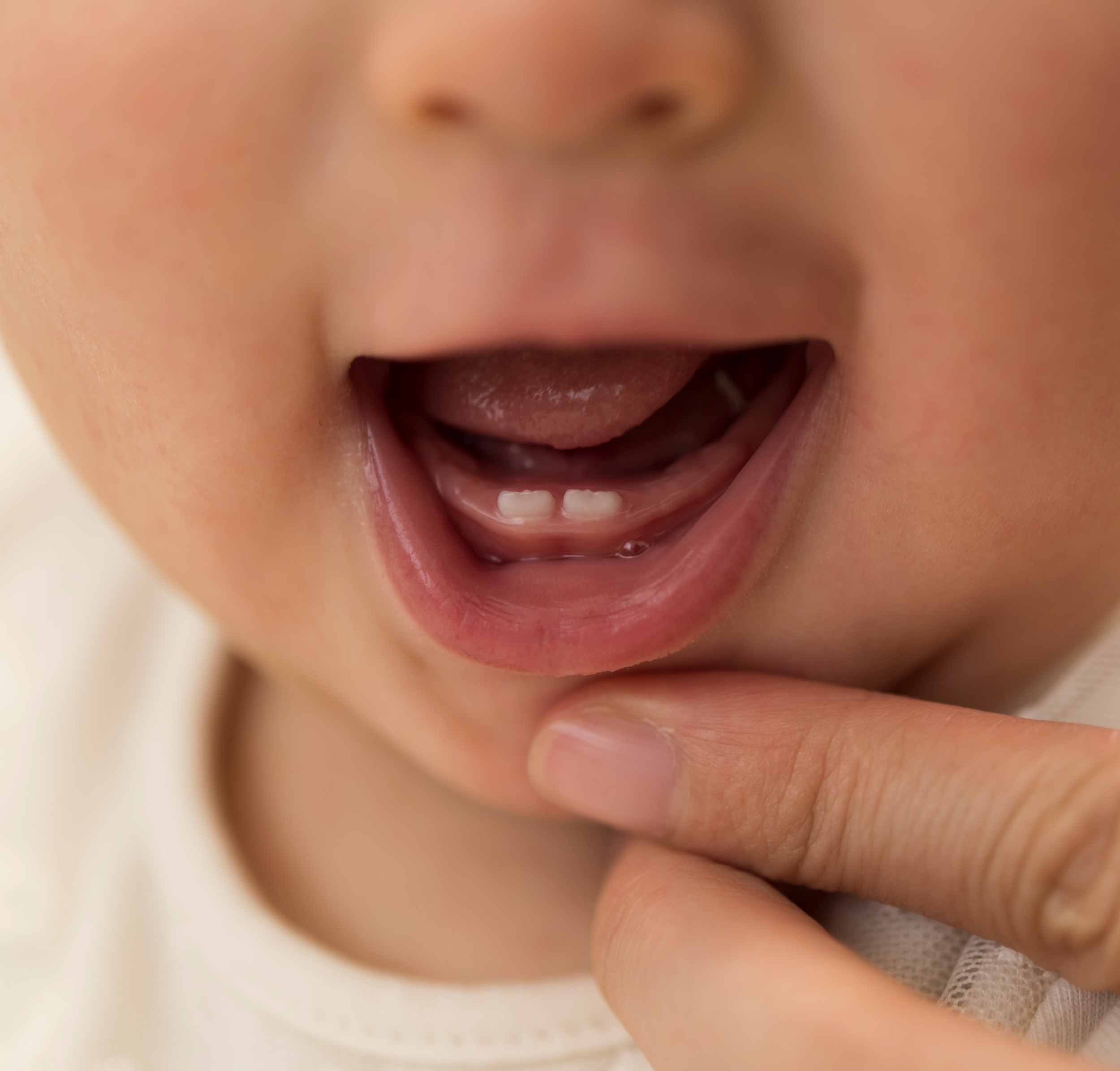Teething and Developmental Milestones: What to Expect and How to Support Your Baby
This post may contain affiliate links or sponsored content. Please review Disclaimer and Disclosure for more info.
Teething is not an easy task for anyone, let alone a baby. It is an uncomfortable necessity to growing up. For some parents, this stage is met with excitement as their little one moves into the next developmental milestone. For others, it’s met with dread as it comes with crankiness and an increase in sleepless nights. Whatever emotion teething is met with, it is an unavoidable stage in their growth that concerns all new parents. In this article, we’ll share some tips and tricks to help parents of all walks of life help support their baby as they grow new pearly whites!
When Does Teething Happen and What to Expect
Teething is an exciting milestone in your little one's life, but it can also bring its fair share of challenges. Typically, babies start teething around the age of 6 months, but remember, every child is unique, so it can vary. Interestingly, studies have shown that girls tend to begin teething slightly earlier than boys. So, if your little princess is showing some signs of discomfort, those tiny pearly whites might just be on their way!
Teething usually lasts about a week: 5 days before the tooth erupts from the gums, and 3 days afterwards as the tooth grows in. As uncomfortable as the beginning teething stage is, buckle up: the most painful stage of teething comes later on, in months 25-33 when the molars come in (ouch!).
Each tooth erupts from the gums in their own time, so teething will be something you will support your child through for a couple of years. Below you can see the general timeline to expect for each tooth.
Signs and Symptoms of Teething
As your baby's teeth make their way to the surface, you might notice a few telltale signs. While not all babies experience the same symptoms, here are some common ones to keep an eye out for:
1. Excessive drooling: Prepare for some adorable bib-wearing moments as your little drool machine goes into overdrive.
2. Irritability and fussiness: No one said teething was easy. Teething can be uncomfortable, causing your baby to feel a bit cranky. Extra cuddles and soothing words can help support them through the discomfort.
3. Gnawing and chewing: Babies instinctively seek relief by putting pressure on their gums, so keep teething toys or a cool, clean washcloth handy for them to chew on.
4. Changes in appetite: Some babies may show a slight decrease in appetite during teething. Remember to offer soft, soothing foods to keep them nourished.
Soothing Remedies for Teething Troubles
Now that we've covered the symptoms, let's explore some tried-and-true remedies to help ease your little one's discomfort:
1. Teething toys: Look for BPA-free, chilled (not frozen) teething toys. The gentle pressure can provide relief to those sore gums, and the coldness can offer a numbing relief.
Many parents reach for the crowd-favorite, Sophie the giraffe. With all the little nubs, it’s a great teether for any grabby baby. Another great option is the Nuby. Throw this in the freezer for a numbing soothing teether for your little one.
2. Cold compresses: Gently apply a cool, damp washcloth or a chilled teething ring to your baby's gums for soothing relief.
3. Massaging the gums: Using a clean finger, gently massage your baby's gums in a circular motion. The gentle pressure can help alleviate discomfort.
4. Pain medications: Let me be clear, this is a choice between you and your pediatrician, so be sure to consult them first for dosage and recommendation before giving your little one medication.
5. Natural remedies: Some parents find comfort in using natural teething remedies like chamomile tea or clove oil (diluted and applied topically). However, similarly to over-the-counter medication, it's essential to consult your pediatrician before trying any natural remedies.
Other Helpful Tips
Teething can disrupt your little one's sleep routine, leading to some restless nights for both of you. Here are a few additional tips to help you survive this teething phase:
1. Stick to your bedtime routine: Consistency is key, even during teething. Maintain your usual soothing bedtime routine to help your baby feel secure and relaxed in the established schedule. Teething is known to be more uncomfortable at night, so be sure to give your little one lots of extra cuddles and kisses to give them support as they settle for the night.
2. Use a teething bib: To keep your baby's clothes dry from excessive drooling, try using a teething bib. It's a practical solution to keep them comfortable throughout the day.
3. Stay positive: Remember, this phase will pass, and soon those adorable little teeth will make their grand appearance. Stay positive, and enjoy the journey of watching your baby grow.
There you have it, dear parents! We hope this teething guide has armed you with the knowledge and practical tips to navigate this exciting yet sometimes challenging milestone. Remember, each baby is unique, and what works for one may not work for another. Trust your instincts and be there for your little one with love and care as they embark on this teething adventure.



